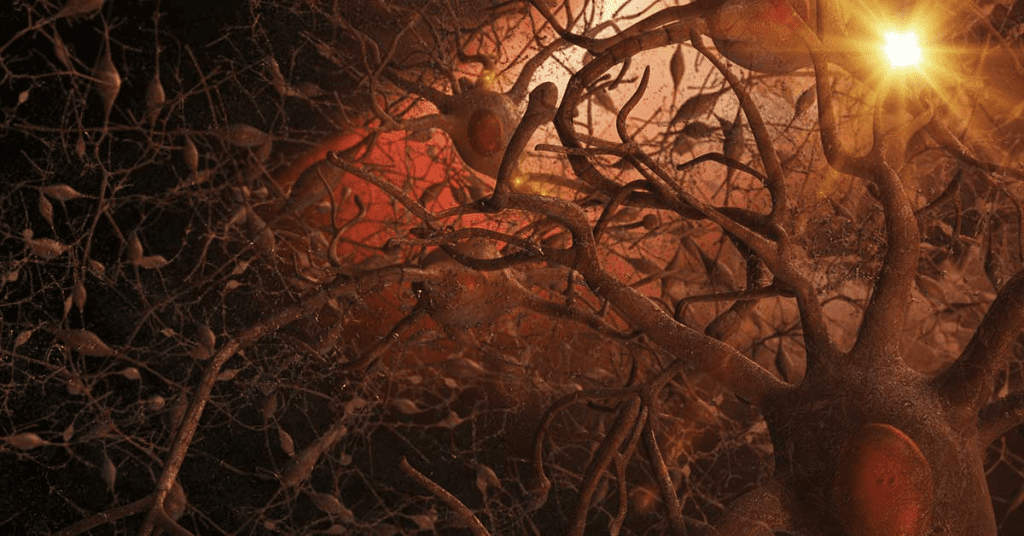In a pioneering breakthrough, scientists have, for the first time, recorded brain activity during the dying moments of a human. This unprecedented study, led by Dr. Ajmal Zemmar of the University of Louisville, provides insights into what may happen in our brain in the final seconds of life. Among the most intriguing revelations is the possibility of a “life recall” phenomenon, where the brain may replay significant memories. Let’s delve into the groundbreaking findings and their far-reaching implications.
A Chance Discovery

The remarkable discovery happened serendipitously while doctors were treating an 87-year-old man with epilepsy. The patient was undergoing electroencephalography (EEG) to monitor brain activity for managing his seizures. During the procedure, the patient unexpectedly suffered a heart attack and passed away. This tragic event gave researchers a rare, once-in-a-lifetime opportunity to record brain activity just before and after death. The result? An invaluable data set capturing the brain’s final moments.
Uncovering Brain Activity Beyond Death
Researchers recorded 900 seconds of the patient’s brain activity, with particular attention to the 30 seconds immediately before and after the heart stopped. The EEG data revealed oscillating brain waves, including gamma oscillations, which are often associated with high-level cognitive functions like memory recall, dreaming, and conscious thought. These oscillations raise the fascinating possibility that, even in our final moments, the brain may still be active and engaged in mental processing, such as retrieving memories.
What Is “Life Recall”?
“Life recall” refers to the phenomenon where people report seeing their life flash before their eyes during near-death experiences. Although mostly anecdotal, this study provides scientific evidence suggesting that this process could indeed occur. The rhythmic brain waves observed during the study hint that, just before death, the brain might activate memory recall mechanisms, potentially offering one last review of life’s most significant moments.
Linking Life Recall to Near-Death Experiences
Interestingly, the gamma waves detected in this dying brain resemble those observed during meditative states and REM sleep—when dreaming often occurs. These brain patterns align with reports from individuals who have experienced near-death experiences (NDEs), many of whom claim to have relived past events or seen vivid memories. This correlation between brain waves in near-death states and during dreaming further strengthens the theory that the brain may engage in “life recall” in its final moments.
Brain Activity After the Heart Stops
One of the study’s most profound findings is that brain activity continued after the heart had stopped beating. This challenges the traditional view of death as the moment when the heart ceases to function. It raises crucial philosophical and medical questions: if the brain continues to function after the heart stops, when does life truly end? These findings may force us to reconsider the very definition of death itself.
Redefining the Boundaries of Death

The implications of this research extend beyond just scientific curiosity—it could lead to a reevaluation of how we define death. Historically, the cessation of the heartbeat has marked the official time of death. However, if brain activity continues for even a brief period after the heart stops, it may prompt discussions about whether death should instead be defined by the cessation of brain activity. This raises ethical and practical questions for healthcare professionals, especially in the context of end-of-life care.
The Impact on Organ Donation
The study also brings up vital questions about organ donation. With brain activity potentially continuing after the heart has stopped, it could alter the guidelines for determining when it’s appropriate to begin harvesting organs. Current practices rely on cardiac death as the point of no return. But could the use of EEG readings provide a more accurate measure of when life truly ends? These findings may prompt further exploration of when and how organs should be retrieved, ensuring ethical and medical practices align with the latest scientific understanding.
A Comforting Possibility?

Dr. Zemmar suggested that the findings could offer comfort to those grieving the loss of a loved one. If the brain does indeed replay positive memories in its final moments, this notion could bring solace to those left behind. “Imagine the brain reflecting on life’s happiest times,” Zemmar noted. While these are still early findings, the possibility that the brain engages in such a process might provide emotional comfort, suggesting that a person’s last moments may be filled with cherished memories rather than suffering.
Limitations of the Study
It’s important to recognize that while this research is groundbreaking, it does have limitations. The study was conducted on a single individual who had epilepsy, a condition that can alter brain activity. Therefore, it’s unclear whether these findings can be generalized to the broader population. However, similar studies in animals, particularly rats, have demonstrated comparable brain wave patterns during death, indicating that this might not be an isolated incident. More extensive research is needed to confirm whether this activity is universal across all humans.
Where Do We Go From Here?

This study raises more questions than it answers, but it undoubtedly opens the door to deeper exploration into life, death, and consciousness. Scientists will now need to conduct further research to determine if these brain wave patterns are consistent across different individuals and circumstances. If they are, the findings could transform how we understand not only the dying process but also the nature of human consciousness itself. What happens in the brain as we die may hold the key to unraveling some of life’s greatest mysteries.
Conclusion: A New Perspective on Life and Death
The first-ever recording of brain activity during death offers fascinating insights into what might happen in our final moments. With evidence suggesting the possibility of “life recall,” where the brain plays back important memories, this study challenges existing ideas about the nature of death. While much remains to be studied, the idea that the brain remains active even after the heart stops raises both philosophical and practical questions for medicine and end-of-life care. For now, this discovery invites us to rethink the boundaries between life and death, providing a new lens through which to view our final moments.





